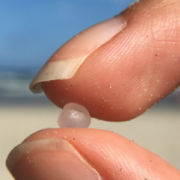(Thread IKs:
Stereotype)
|
Things aren't that boh gently caress it
|
|
|
|

|
| # ? May 23, 2024 11:19 |
|
A Bakers Cousin posted:I chewed those white foam cups a lot as a kid I have a memory of peeling paint chips off my bedroom wall when I was like 3. l also used to put everything in my mouth, including british sand. I assume I’m suffering lifelong consequences of both
|
|
|
|
I was known around the neighborhood for chewing on He-Man heads in the early 80s.
|
|
|
|
|
|
|
|
what is British sand? is that like the family cloth??
|
|
|
|
|
What is the family cloth? Is that what surrounds the family jewels?
|
|
|
|
it’s the piece of soft cloth some British families use to wipe their asses. Use and re-use
|
|
|
|
|
bedpan posted:https://twitter.com/gblad/status/1325136117201506304
|
|
|
|
|
|
|
|
wynott dunn posted:something something carbon capture something Iceland https://youtu.be/gAlYfgA_jdM
|
|
|
|
i'm glad exxon mobil has our back with this newfangled CCS tech, they're deploying it huh? phew. weird that they have comments turned off on that vid
|
|
|
|
Mola Yam posted:found out about a new hell on earth today, thought it belonged here that’s hosed 
|
|
|
|
|
|
|
|
It's incredible how quickly Sunrise got swallowed by the Dems lol
|
|
|
|
dang
|
|
|
|
Mola Yam posted:found out about a new hell on earth today, thought it belonged here yo what the gently caress
|
|
|
|
Just a reminder that winter tomatoes from the US are probably also picked by migrant slaves especially if they were grown in florida. https://www.theatlantic.com/health/archive/2011/06/slavery-in-the-tomato-fields/240140/
|
|
|
|
silicone thrills posted:Just a reminder that winter tomatoes from the US are probably also picked by migrant slaves especially if they were grown in florida. migrant slaves and prison slaves harvest basically all food in america that a combine harvester can't handle
|
|
|
|
silicone thrills posted:Just a reminder that winter tomatoes from the US are probably also picked by migrant slaves especially if they were grown in florida. I befriended a 20 something dude in Florida who would cross the border from mexico every year to pick tomatoes and strawberries and then cross the border back to hang out with his family and spend all the money he made showing his impoverished loved ones a good time and helping them out with whatever they needed. I asked him if he was afraid of getting caught and he said yeah but it was totally worth it for the feeling of showing up back home flush with cash. I think about him now and again and hope he doing well.
|
|
|
|
silicone thrills posted:Just a reminder that winter tomatoes from the US are probably also picked by migrant slaves especially if they were grown in florida. in canada they're all grown in greenhouses in leamington, ontario  there are so many foreign workers brought in from mexico that there's actually a mexican consulate in this rural ontario town
|
|
|
|
JAY ZERO SUM GAME posted:yo what the gently caress april fools
|
|
|
|
Food is grown and harvested in brutal conditions because it's the most profitable, and the land is owned by megacorps who lobby to make sure they don't have to care about the rights of their below-minimum-wage workers
|
|
|
|
I'm enjoying The Ends of The World, about the mass extinctions of the past 
|
|
|
JeremoudCorbynejad posted:I'm enjoying The Ends of The World, about the mass extinctions of the past The full terrifying weight of this statement will become lmao after the next chapter
|
|
|
|
|
IAMKOREA posted:The full terrifying weight of this statement will become lmao after the next chapter now thats a solid thread title
|
|
|
|
silicone thrills posted:Just a reminder that winter tomatoes from the US are probably also picked by migrant slaves especially if they were grown in florida. i'm not saying it's any better but I do notice labels in the grocery store and I don't think I've ever seen out of season produce that didn't come from mexico or south america in my life
|
|
|
|
IAMKOREA posted:The full terrifying weight of this statement will become lmao after the next chapter 
|
|
|
|
JeremoudCorbynejad posted:I'm enjoying The Ends of The World, about the mass extinctions of the past It's a really good book and I greatly enjoyed it. It was probably my hardest original crack ping
|
|
|
|
IAMKOREA posted:The full terrifying weight of this statement will become lmao after the next chapter Koirhor posted:now thats a solid thread title
|
|
|
|
mediaphage posted:in canada they're all grown in greenhouses in leamington, ontario The Mexican Consulate ensures the safety and fair compensation of the Mexican workers right?
|
|
|
|
The Wisest Moron posted:The Mexican Consulate ensures the safety and fair compensation of the Mexican workers right? *padme stare* right? 
|
|
|
|
Probably about as concerned as native countries are about the laborers in Almeria: https://www.aljazeera.com/features/2019/10/16/consumers-are-not-aware-we-are-slaves-inside-the-greenhouses
|
|
|
|
The Wisest Moron posted:The Mexican Consulate ensures the safety and fair compensation of the Mexican workers right? If by "ensures the safety" etc. you mean "is totally fine with migrant workers being stuffed into tiny bunkhouses where they inevitably catch covid and are threatened with being sent back to Mexico if they complain," then yes. The beekeeping industry in Canada is all about migrant slaves too. Minimum wage for hefting 80 lb honey supers and getting stung all day long.
|
|
|
|
hmmmm, if I encountered capitalism I would just choose not to participate
|
|
|
|
Karach posted:The beekeeping industry in Canada is all about migrant slaves too. Minimum wage for hefting 80 lb honey supers and getting stung all day long. I bet they get attacked by the bees, too
|
|
|
Rachel Carson spinning with enough force to burrow to the center of the dying earth https://www.scientificamerican.com/article/60-years-after-silent-spring-warned-us-birds-and-humanity-are-still-in-trouble/quote:60 Years after Silent Spring Warned Us, Birds—and Humanity—Are Still in Trouble
|
|
|
|
|
https://twitter.com/dwallacewells/status/1510585158935752707 That seems like a lot
|
|
|
|
quote:https://www.nytimes.com/2022/04/03/briefing/climate-optimism-ukraine-week-ahead.html
|
|
|
|
|
T-Paine posted:https://twitter.com/dwallacewells/status/1510585158935752707 That might actually be better for the ocean that it's all sinking to the bottom Not good, obviously, and certainly not without dire consequence, but better
|
|
|
|

|
| # ? May 23, 2024 11:19 |
|
[Biosphere Collapse] Look for productive ways to prevent impending doom.
|
|
|















































